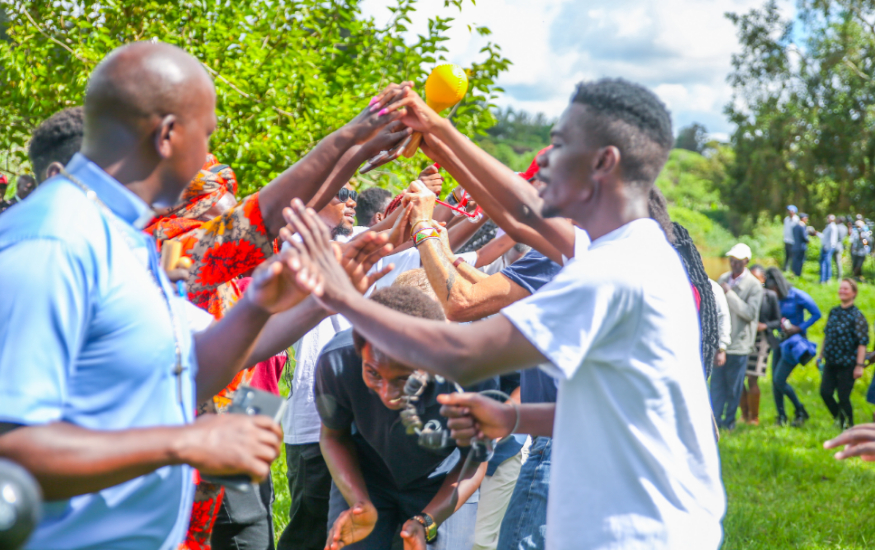That a lot of extra investment is necessary to achieve SDG6 is an understatement. According to the World Bank, an additional 116 billion USD is needed annually for constructing new infrastructure to achieve SDG6 by 2030. Kenya needs an additional 4 billion USD to achieve clean water and sanitation for all Kenyans. So, in 2024, investment mobilisation is one of the primary areas of focus for the Blue Deal team in Kenya.

One of the relevant areas for the Blue Deal partnership is the Thika river basin. It is one of the main sources of water for Nairobi, Kenya’s fast-growing capital, and water quality and quantity has deteriorated over the past decades. Relevant authorities and communities often lack funds, capacity, and stakeholder input to address these issues. There is a need for unprecedented collaboration.
Bring Njururi back
An example of this collaboration happened in April 2023. World Waternet in partnership with Embassy of the Earth, facilitated the Thika River Basin Ecosystem Future Design Basecamp. This was funded by the NWB Fund and through existing Blue Deal and WaterWorX partnerships, which set the stage for a revolutionary approach to ecosystem restoration and water management in Kenya. Participants, including representatives from the public and private sectors, Nairobi City Water and Sewerage Company, and the Water Resources Authority, as well as local communities, shared their ideas on the future of the basin and developed action plans aiming to achieve their most desirable future in 2033. The mission: to bring the Njururi (a water beetle) back to the river.
Participants now decided on the development of a so-called matrix organisation, designed to foster open communication, interdisciplinary collaboration, and a dynamic, open-system approach. The “Matrix Organisation” will be able to implement the initial action plans and to actively adapt to future changes in the turbulent environment they operate in. The design principle is: “Put responsibility for control and coordination at the level where the work is done.”
Njururi Fund
At its heart is the creation of the Njururi Fund, a novel funding mechanism to support seed initiatives focused on revitalising the basin’s ecosystems. This approach involves key actors, private, public and government, contributing seed money – 60% from standing organisations and 40% from external funders. With continued support of the NWB Fund, this Njururi Fund will enter its first stage operationalising the Matrix Organisation through collectively financing and implementing the first 5 seed initiatives. These are implemented by each of the 5 taskforces around water quality and quantity, biodiversity, conservation, recreation, and policy.
Much work lies ahead, and these initiatives alone will not be capable of covering the whole finance gap in the Kenyan water sector. But exploring the potential of this novel approach and engaging with such a wide variety of stakeholders and mobilising new investments in the process, might inspire those working on SDG6, not only in Kenya, but all over the world.
Article written by Jakob Ollivier de Leth (World Waternet).
